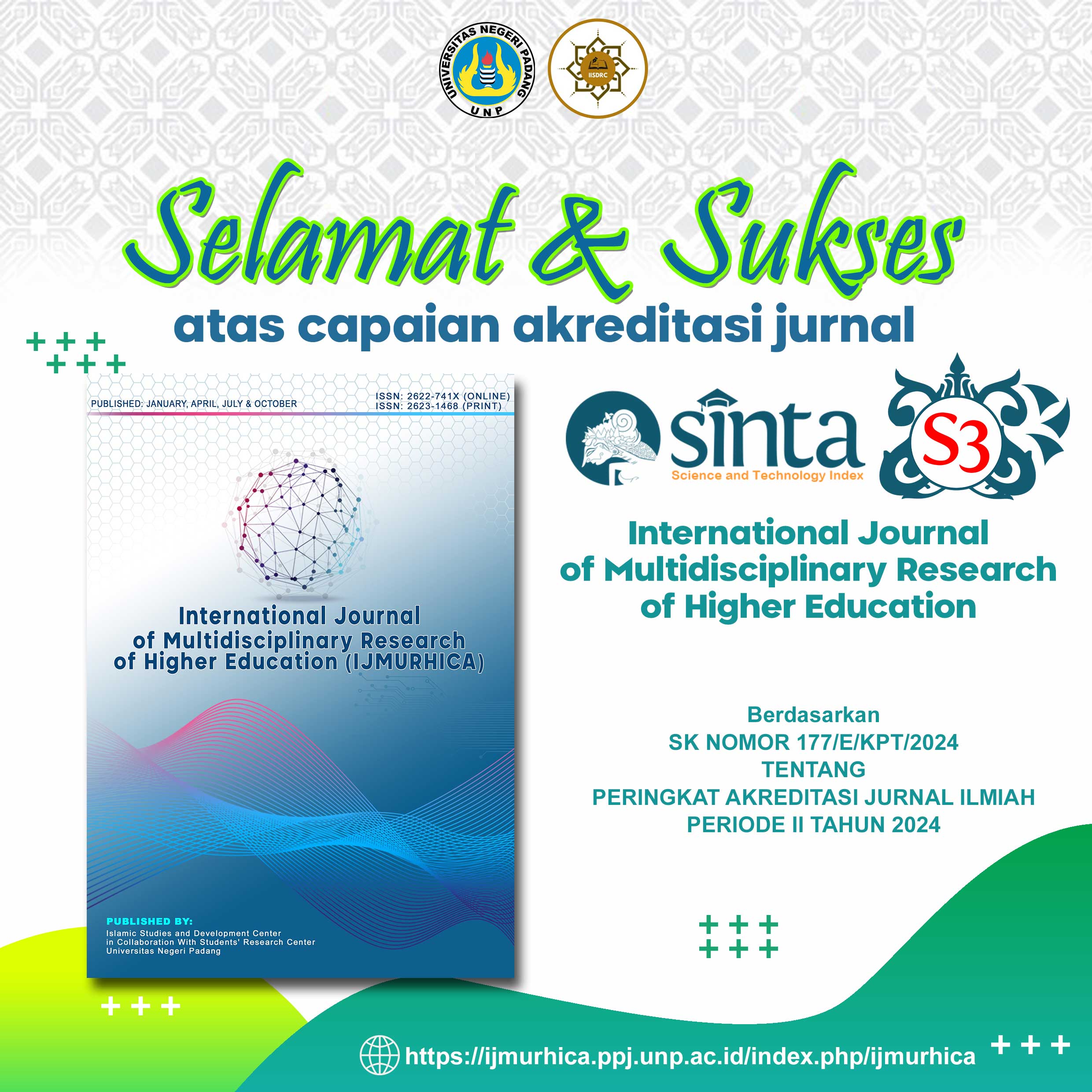Character Education through the Pancasila Student Profile Project toward Indonesia’s Golden Generation 2045
DOI:
https://doi.org/10.24036/ijmurhica.v8i3.375Keywords:
Character development, Pancasila student profile, Islamic educationAbstract
The Strengthening the Profile of Pancasila Learners project is a project-based learning that is implemented to achieve the profile of Pancasila learners, namely faith, devotion to God Almighty and noble character, mutual cooperation, independence, global diversity, critical reasoning, and creativity. These dimensions indicate that the Pancasila learner profile does not only focus on the cognitive domain, but also instills attitudes and behaviors that are in accordance with the values of Pancasila. This study aims to analyze the implementation of the Pancasila learner profile strengthening project (P5) in Islamic religious education and ethics subjects to foster students' mutual cooperation and independent characters and factors that hinder its implementation. This research method uses a qualitative method with a descriptive type and a field research approach. Research data were collected using observation, interview and documentation techniques. Data analysis uses interactive techniques of Milles and Huberman, and Saldana models which include data collection, data reduction, data presentation and verification or conclusion drawing, then testing data validity using source triangulation and technique triangulation. The results of the study revealed that i) The development of students' mutual cooperation character is carried out through the formation of activity groups as an effort to strengthen student cooperation in making waste banks, regarding this matter, all students work together to clean the school environment. ii) The development of students' independent character is shown by the continuation of student behavior after making a waste bank, namely students independently dispose of garbage in its place. iii) Factors inhibiting student character development such as the habit of littering behavior, differences in individual character, lack of supervision and guidance from educators and education personnel, and the non-implementation of sanctions for violators.
Downloads
Downloads
Published
How to Cite
Issue
Section
License
Copyright (c) 2025 Ulvi Putri Mustafidah, Mashudi Mashudi, Lailatur Usriyah

This work is licensed under a Creative Commons Attribution-ShareAlike 4.0 International License.






